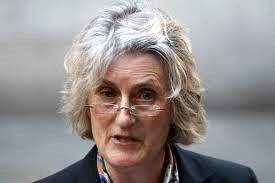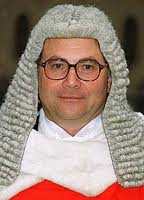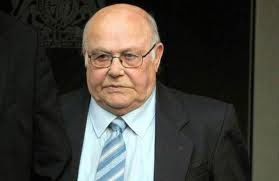“It is a cardinal rule of British justice that a trial should take place in open Court”
– The Rt. Hon. Sir Alfred Bucknill, 1953
 |
| Bristol Magistrates Court |
- The Magistrate’s bench
- The bail hearing
- The timetable hearing – by videolink
- The plea and case management hearing – by videolink
- [A defence hearing, at which the defendant did not appear]
- The pre-trial hearing
 |
| Joanna Yeates |
It is very suggestive that a highly intelligent man who had successfully defended his own doctoral thesis in public never said a single word to defend himself against a charge of murder. Why did he not ask his accusers what motive a man with his education could possibly have for murdering a stranger whom he did not know? Even the stupidest man would have said, “I didn’t do it, m’lud”. It demonstrates that his defence team were not on his side and that this “guest” in our country was very vulnerable and utterly terrified by the situation in which he found himself.
 |
| Vincent Tabak defemding his doctoral thesis |
Vincent Tabak became a suspect on 31st December 2010 (though he was evidently not notified of this formally, nor cautioned), but he was not arrested until dawn on 20th January 2011. The choice of a Thursday for his arrest gave the police two extra days to hold him in their custody, because Monday was the earliest day he could be brought before a Magistrate.
Hearing before the Magistrate’s bench
Just before 10.00 a.m. on the morning of 24th January 2011, a Dutch interpreter entered the largest room in Bristol Magistrates Court, Court One, and took the oath. As the defendant was articulate and fluent in English (and in German, for that matter), her role was purely theatrical – namely, to reinforce the illusion that he was an uncouth foreigner. Her identity has not been published, but artistsʼ impressions show someone strongly resembling an expert witness who would testify at the trial, Lyndsey Farmery.
 |
| Vincent Tabak in custody wearing borrowed glasses |
 |
| Crown Prosecutor Ann Reddrop, Head of the Complex Casework Unit. The CPS defines a “complex case” as one with multiple victims and multiple defendants. |
The Bristol magistrate told the defendant to stand up again, and then said: “This matter has to go to the Crown Court, and you will appear in the Crown Court tomorrow, where a bail application can be put.” With a total disregard for the limits of his authority to set a timetable for a higher court, he read out to the court the timetable that Ann Reddrop had given him. “There will be a preliminary hearing on 31st January 2011, and there will be a plea and case management hearing on 29th April 2011. The case papers must be served on the defence by 15th March 2010 at the latest.”
The hearing was a pure formality and lasted just four minutes. As the prisoner was led away in handcuffs, he glanced briefly at the approximately forty-four people in the public gallery, of whom only four, according to The Guardian’s Steven Morris, were not journalists.
The interpreter also left, collecting her fee and travel expenses. By the time their role in the prosecution of the trilingual engineer Vincent Tabak was complete, Avon & Somerset Constabulary would disburse £3468 in interpreter fees and expenses. Was an interpreter present at Vincent Tabak's interviews at Schiphol and at the police station after his arrest? Was material on his laptop computer analyzed by a Dutch interpreter?
The magistrate failed to perform his most fundamental function – of asking the prisoner whether he had committed the crime. He did not ask to have the case against the accused and the evidence for it explained to him. Nor did he take any steps to have the defendant’s allegations of corruption by LGC Forensics investigated.
 |
| Daily Mail journalist Paul Harris |
 |
| Paul Cook |
 |
| Paul Vermeij |
 |
| Bristol Prison, Horfield |
The bail hearing
 |
| Mr. Justice Treacy |
 |
| Landlord Christopher Jefferies |
 |
| Tanja Morson |
 |
| The press were not told that detectives from Bristol had been sent to Holland |
Why did the judge fail to perform his most fundamental function – of asking the prisoner whether he had committed the crime? Considering the night of terror his client had just spent in Bristol Prison, why did Vincent Tabak’s first barrister, Paul Cook, make no application for bail? It must have been clear to both the magistrate and the judge that the evidence fell far short of what would have been necessary to support a charge of murder unless a confession were obtained, but Vincent Tabak nevertheless continued to be held in custody. Was his barrister under orders to turn the accused person into a model prisoner who would do whatever he was told to do without question, including sign a confession?
Paul Vermeij, the spokesman for the Tabak family, said: “Vincent seems to be coping with what has happened to him. He has remained positive about it. He told her [his girlfriend] ‘I am safe, I am positive’. He is confident there will be a good outcome to this. He says the prison staff are treating him well. His girlfriend and his family have received many letters of support from friends and she told him about them.” (The Mirror, 27th January 2011)
The timetable hearing
 |
| Michael Fitton QC |
 |
| Long Lartin Prison |
 |
| Nigel Lickley QC |
None of Vincent Tabak’s family was present in court, even though they had previously stated that they intended to fly over for this hearing. This is presumably because neither they nor his girlfriend had received permission to visit him in prison. This was probably the response of the Crown Prosecution Service South West to the demand for an independent post-mortem of the victim’s body, which delayed her funeral.
At some stage of his custody, between 31st January 2011 and 5th May 2011, another defence team from a different chambers in Bristol, Kelcey & Hall, took over. The reason for this change was not made public, but it can be inferred that it was because: (1) Vincent Tabak himself was dissatisfied with the lawyers who had twice failed to apply for bail on his behalf, (2) His main object in consulting the prison chaplain was probably to receive advice on the choice of a better lawyer, (3) The chaplain may have been briefed to recommend Kelcey & Hall, who had been “groomed” by the police and the CPS, and (4) the QC instructed by Kelcey & Hall, William Clegg, would not be in a position to recognise an imposter on the video screen at the forthcoming plea hearing.
 |
| “Bad character evidence” |
Illegal images of child abuse were also subsequently alleged to have been found on Vincent Tabak’s Dell laptop computer, but no application was ever made to submit these to the jury at his murder trial as evidence of his “bad character”, even though it is obvious that the judge would not have rejected the application.
As no witnesses were ever named in connection with the collection of the evidence of visits to prostitutes nor the viewing of adult porn and the keeping of child abuse images, as it can be inferred that the rejection of those items applied for as admissible evidence and the omission from this application of the much more damaging child abuse images had been pre-arranged between the lawyers, it can also be inferred that all of this so-called “evidence” was an invention fabricated by the police and the lawyers.
The plea and case-management hearing
 |
| Mr. Justice Field |
The hearing was held in Court Two. According to the official visitors’ guide to the Old Bailey, Court Two is the high-security court, and terrorist trials and the like often take place here.
 |
| Hilary Douglas |
Another reason for this sudden change of venue was probably to prevent any interested members of the general public except accredited journalists and the victim’s parents from hearing about the adult pornographic videos and the prostitutes. The discussions on whether to accept this so-called “bad character evidence” should have been resolved at this hearing, but we are not allowed to know whether they were or not, because the judge imposed reporting restrictions. The restrictions on reporting the discussions themselves were subsequently removed after the end of the trial, on 28th October 2011, but the actual date and venue of the discussions and of the imposition of the restrictions themselves was subject to permanent reporting restriction. This hearing was in effect a legally-enforced off-the-record briefing.
 |
| The Old Bailey |
Asked how he pleaded to this charge, the person seen on the video screen answered Not Guilty. He was then asked for his plea to Manslaughter. His plea of Guilty to this charge evoked a gasp from the court, and was to seal the fate of Vincent Tabak. We are all accustomed to seeing actors who appear on TV screens telling us they have done things that they have not actually done: the appearance of a person purporting to be the defendant on the video screens at the Old Bailey was just such a performance.
The extent of the injuries to Joanna’s body were not disclosed to the public until the trial, so it is quite likely that the defendant was unaware of them. It would have made no sense for him to plead guilty of manslaughter if his defence team had informed him that her injuries were clear evidence of intent to cause grievous bodily harm.
It was Counsel for the Prosecution Nigel Lickley QC who applied at this hearing for his trial to be held in Winchester to minimize the influence of adverse local publicity that could affect the trial if it were held in Bristol.
However, Counsel for Vincent Tabak’s Defence, William Clegg QC, who, catastrophically for Vincent Tabak as it would turn out, opposed this application. He asked for the trial to be held at Bristol Crown Court, and the judge upheld his opposition. This was the case’s first court appearance of Vincent Tabak’s defence barrister QC. Mr Clegg was instructed by Ian Kelcey, the immediate past Chairman of the National Law Society’s Criminal Law Committee. It was the Defence who were keen for the jurors to visit the flat where Miss Yeates had lived, so that they could visualize for themselves the fictitious scenario that they had contrived of the killing. Holding the trial in Winchester could create transport difficulties, they claimed. It was thus the Defence who wanted to throw their own client to jurors whom the Prosecution expected to be influenced by adverse local publicity.
The trial date was set for 4th October 2011.
After the hearing at the Old Bailey, The Mirror, 6th May 2012, reported that Joanna’s parents revealed they had known that the guilty plea was coming. Mr. Yeates said: “What has happened today has come as no surprise to both of us. “We expected for him to plead guilty to manslaughter and that’s exactly what has happened.” But back in the Dutch village of Veghel where Vincent Tabak grew up, the admission was met with surprise. Former family spokesman Paul Vermeij said last night: “This is shocking news. I am very surprised. There was no suggestion of this at all.” Tabak’s friend Joran Jessurun, a software engineer at Eindhoven University, tweeted: “I didn’t expect that.” the accused’s sister Ilse said: “I have nothing to say.” This shows that Mr. & Mrs. Yeates had been told the plea that was going to be entered before the defendant, his family and his friends knew anything about it, reinforcing the evidence that the face on the video screen was that of an actor.
Vincent Tabak was not present for a brief hearing held on 7th September 2011. According to The Bath Chronicle the following day: “At a brief hearing at Bristol Crown Court yesterday, the Buro Happold employee’s barrister, William Clegg QC, said his team would supply the court with an enhanced statement of the defence case. The statement will reveal the time of Miss Yeates’s death, the degree of force used to kill her and the circumstances in which her body was deposited on a verge at Longwood Lane, Failand... Mr Clegg also asked whether it would be possible to house his client at Bristol Prison for the trial, rather than putting him through a four-hour daily round trip back and forth from Long Lartin jail, in Worcestershire, where he is currently in custody. Nigel Lickley QC, prosecuting, said consideration should be given to family, media and public access for proceedings, which were likely to attract a high degree of interest. He also said the jury were likely to be taken to view Miss Yeates’s flat and the route to the spot where she was found. The Recorder of Bristol, Judge Neil Ford QC, adjourned the case for a pre-trial review on 20th September 2011, with the trial due to start on 4th October 2011.”
20th September 2011. Four security guards escorted Vincent Tabak into the dock of courtroom six at Bristol Crown Court for the pre-trial hearing - his first court appearance in person after his plea to Guilty of Manslaughter had been entered. This hearing had originally been scheduled for July. Was it deliberately held back so that the verdict in another case entirely, that of Daniel Lancaster, could be put before Vincent Tabak for his consideration? Joanna Yeates’s parents were in court. It was the first time they had seen him in court in person.
The greying 33-year-old defendant wore glasses, a white shirt, blue tie and dark suit for the 30-minute hearing before Judge Martin Picton. The Detective Chief Inspector who led the Avon and Somerset investigation, Phil Jones, sat behind the barristers and immediately in front of the defendant. Vincent Tabak, who sat hunched in the dock, spoke only once. The clerk asked him: “Are you Vincent Tabak?” He replied: “Yes I am.” He was charged with unlawfully killing Joanna Yeates between 16th and 19th December 2010.
Prosecutor Nigel Lickley QC told the court that the trial would include what he called a “digital presentation”, and a site visit by jurors, who would walk the part of the route that Joanna is alleged to have taken on her last Friday evening from the Hophouse pub in Clifton to 44 Canynge Road. He evidently raised 11 points with the defence team, but none of these was disputed. It may be conjectured that he proposed to remove the following “sacrificial” items from the prosecution’s case:
Judge Picton had been expecting to see an enhanced defence statement on 19th September 2011. He made an order for it to be submitted by Vincent Tabak’s legal team by 4 p.m. on 23rd September 2011. Not until 22nd September 2011 did Vincent Tabak sign his “enhanced” defence statement describing how he supposedly strangled Joanna Yeates by holding her neck for 20 seconds. It did not contain any motive for why he should have done this. It is quite likely that the defendant would not have signed the “enhanced statement” if his defence team had informed him that her injuries were clear evidence of intent to cause grievous bodily harm. It can be inferred that his lawyers also omitted to warn him that his conversations with the prison chaplain would be misrepresented in court as a confession. Nor would he have put off signing this statement till the last possible minute if it really had been he who had pleaded guilty to manslaughter over four months earlier.
Why did Vincent Tabak’s defence QC William Clegg not negotiate for the murder charge to be dropped in return for the admission of manslaughter? Why did the CPS persist in accusing him of murder when it must have been obvious that he had no conceivable motive for killing Joanna Yeates and that he had denied the charge completely for the first eight months of his custody? It all points to a conspiracy to frame an innocent man as a scapegoat for another person’s crime. It is not normally possible for an accused person for whom a plea of guilty to manslaughter has been entered to appeal against their subsequent conviction for murder.
To get Vincent Tabak to sign his appalling and bizarre “enhanced” statement, the lawyers must have threatened him with a stick and offered him a carrot. The stick probably consisted of a serious threat of the prosecution of his girlfriend for her part in the alleged attempt to incriminate their landlord and her alleged attempt to interfere with the course of justice as the “sobbing girl”. Not only could she face a year or more in prison herself, but she could be publicly humiliated at his own trial. He was honour bound to sign.
On the other hand, Vincent Tabak was probably offered the carrot of a sentence as ludicrously lenient as that just handed down (apparently deliberately) to the Colne strangler Daniel Lancaster. Furthermore, the acceptance by his own lawyers of a false plea would have provided the prisoner with a means to impose conditions on his captors. In return for undertaking not to expose the swindle publicly at some stage during his trial, he could have demanded an early transfer to a Dutch jail, or even a guarantee of freedom under a false identity. The total lack of media interest in how so sensational a prisoner as Vincent Tabak is faring in jail since his trial suggests that some deal of this nature did take place.
After his Manslaughter plea became known, all public support for Tabak from his friends, former fellow students and his girlfriend’s parents evaporated like dew before the morning sun. The girlfriend herself had already disappeared from public view, and Vincent Tabak’s family in Holland never gave any further interviews to the press. This is one of the most depressing and terrifying features of this entire case.
The extent of the injuries to Joanna’s body were not disclosed to the public until the trial, so it is quite likely that the defendant was unaware of them. It would have made no sense for him to plead guilty of manslaughter if his defence team had informed him that her injuries were clear evidence of intent to cause grievous bodily harm.
It was Counsel for the Prosecution Nigel Lickley QC who applied at this hearing for his trial to be held in Winchester to minimize the influence of adverse local publicity that could affect the trial if it were held in Bristol.
 |
| William Clegg QC |
 |
| Ian Kelcey |
The trial date was set for 4th October 2011.
 |
| Joanna Yeates’s parents arriving at the Old Bailey accompanied by DC Emma Davies. “We expected for him to plead guilty of manslaughter” |
The defence hearing
 |
| The jury were likely to be taken to view Miss Yeates’s flat |
The pre-trial hearing
 |
| Judge Martin Picton |
The greying 33-year-old defendant wore glasses, a white shirt, blue tie and dark suit for the 30-minute hearing before Judge Martin Picton. The Detective Chief Inspector who led the Avon and Somerset investigation, Phil Jones, sat behind the barristers and immediately in front of the defendant. Vincent Tabak, who sat hunched in the dock, spoke only once. The clerk asked him: “Are you Vincent Tabak?” He replied: “Yes I am.” He was charged with unlawfully killing Joanna Yeates between 16th and 19th December 2010.
 |
| Detective Chief Inspector Phil Jones sat in front of the defendant |
- David Yeates’s statement about the state that he and his wife found the flat in.
- Teresa Yeates’s statement about the state that she and her husband found the flat in.
- Evidence alleging the defendant’s DNA on Joanna’s front-door.
- Evidence alleging Joanna’s DNA on the defendant’s spectacles.
- Evidence alleging Joanna’s DNA and blood in the defendant’s flat.
- The Preface to Vincent Tabak’s PhD thesis.
- Statement from Tanja Morson about the personal qualities of the man she planned to marry, her Schiphol statement, and evidence about various facts on which she could shed light.
- Statement from Shrikant Sharma about the defendant’s good qualities as an employee and personal qualities.
- Witness testimony and two witness statements by the landlord Christopher Jefferies.
- Witness testimony by Graeme Watson, manager of Bedminster Fire Station.
Judge Picton had been expecting to see an enhanced defence statement on 19th September 2011. He made an order for it to be submitted by Vincent Tabak’s legal team by 4 p.m. on 23rd September 2011. Not until 22nd September 2011 did Vincent Tabak sign his “enhanced” defence statement describing how he supposedly strangled Joanna Yeates by holding her neck for 20 seconds. It did not contain any motive for why he should have done this. It is quite likely that the defendant would not have signed the “enhanced statement” if his defence team had informed him that her injuries were clear evidence of intent to cause grievous bodily harm. It can be inferred that his lawyers also omitted to warn him that his conversations with the prison chaplain would be misrepresented in court as a confession. Nor would he have put off signing this statement till the last possible minute if it really had been he who had pleaded guilty to manslaughter over four months earlier.
Why did Vincent Tabak’s defence QC William Clegg not negotiate for the murder charge to be dropped in return for the admission of manslaughter? Why did the CPS persist in accusing him of murder when it must have been obvious that he had no conceivable motive for killing Joanna Yeates and that he had denied the charge completely for the first eight months of his custody? It all points to a conspiracy to frame an innocent man as a scapegoat for another person’s crime. It is not normally possible for an accused person for whom a plea of guilty to manslaughter has been entered to appeal against their subsequent conviction for murder.
To get Vincent Tabak to sign his appalling and bizarre “enhanced” statement, the lawyers must have threatened him with a stick and offered him a carrot. The stick probably consisted of a serious threat of the prosecution of his girlfriend for her part in the alleged attempt to incriminate their landlord and her alleged attempt to interfere with the course of justice as the “sobbing girl”. Not only could she face a year or more in prison herself, but she could be publicly humiliated at his own trial. He was honour bound to sign.
On the other hand, Vincent Tabak was probably offered the carrot of a sentence as ludicrously lenient as that just handed down (apparently deliberately) to the Colne strangler Daniel Lancaster. Furthermore, the acceptance by his own lawyers of a false plea would have provided the prisoner with a means to impose conditions on his captors. In return for undertaking not to expose the swindle publicly at some stage during his trial, he could have demanded an early transfer to a Dutch jail, or even a guarantee of freedom under a false identity. The total lack of media interest in how so sensational a prisoner as Vincent Tabak is faring in jail since his trial suggests that some deal of this nature did take place.
After his Manslaughter plea became known, all public support for Tabak from his friends, former fellow students and his girlfriend’s parents evaporated like dew before the morning sun. The girlfriend herself had already disappeared from public view, and Vincent Tabak’s family in Holland never gave any further interviews to the press. This is one of the most depressing and terrifying features of this entire case.
